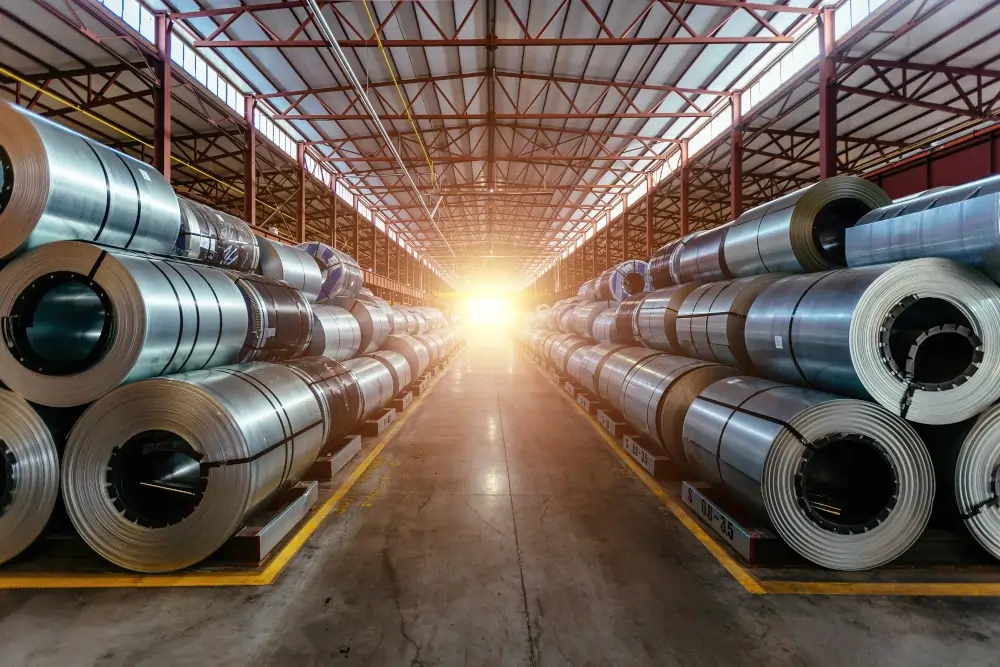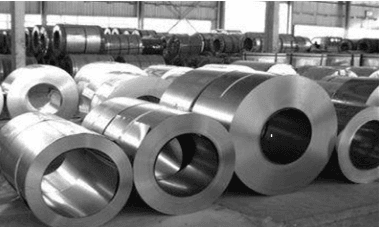Steel is the backbone of modern infrastructure, used in everything from skyscrapers and bridges to automotive components and home appliances. However, before steel reaches its end user—whether that’s a construction company, manufacturer, or engineer—it must pass through several stages in the supply chain. Two of the most important players in this chain are steel distributors and steel stockists. Although these terms are sometimes used interchangeably, they represent distinct roles with specific functions.
In this article, we’ll define what steel distributors and steel stockists do, explore the differences between them, and examine how both contribute to the efficient and timely delivery of steel to various industries.
What is a Steel Distributor?
A steel distributor is an entity that purchases steel products in large volumes directly from steel mills and resells them to various customers, such as stockists, manufacturers, or end-users. Distributors often act as middlemen between steel producers and businesses that require steel but may not buy in bulk directly from mills due to scale, logistics, or inventory management concerns.
Key Functions of a Steel Distributor:
-
Bulk Purchasing: Distributors buy large quantities of steel products, often securing favorable pricing and delivery schedules due to economies of scale.
-
Logistics and Transportation: They manage the logistics of moving steel from mills to warehouses and then on to customers, often across different regions or countries.
-
Product Variety: Distributors usually carry a wide range of steel products—flat steel, long steel, coated steel, structural steel, etc.—to meet diverse market needs.
-
Value-Added Services: Many distributors provide additional services like cutting, slitting, bending, galvanizing, or even just-in-time delivery.
-
Supply Chain Optimization: Distributors play a key role in balancing supply and demand, helping reduce lead times and costs for both mills and customers.
What is a Steel Stockist?
A steel stockist is a business or individual that holds an inventory of steel products for resale. Unlike distributors, who typically work on a larger scale, stockists are more localized and cater to smaller businesses, retailers, or end-users. They may or may not purchase directly from mills and often rely on distributors as their suppliers.
Key Functions of a Steel Stockist:
-
Inventory Management: Stockists maintain readily available stock of common steel types and sizes to fulfill immediate customer needs.
-
Local Supply: They cater to regional markets, providing accessibility to customers who need steel on short notice.
-
Customer Support: Stockists typically have a better understanding of local market needs and offer personalized service and support.
-
Smaller Quantities: Unlike distributors, stockists are able to sell in smaller volumes, making them ideal for smaller construction projects or manufacturing units.
-
Immediate Availability: Their business model is centered around having the steel products in stock for quick delivery or pickup.
Key Differences Between a Steel Distributor and a Steel Stockist
| Feature | Steel Distributor | Steel Stockist |
|---|---|---|
| Scale of Operation | Large-scale, often national or international | Local or regional |
| Clientele | Wholesalers, large manufacturers, stockists | Contractors, retailers, smaller manufacturers |
| Inventory Model | Focus on bulk transactions, less inventory holding | Heavy focus on maintaining inventory |
| Sourcing | Directly from mills | From distributors or other stockists |
| Value-added Services | Frequently offered | Limited or basic services |
How They Work Together in the Steel Supply Chain
The steel supply chain is a multi-layered system, and both distributors and stockists are essential for its efficiency. Steel mills focus on producing vast quantities of standardized products. Distributors step in to break down these large shipments, offer value-added services, and create a diversified inventory for broader market segments. From there, stockists bridge the final gap, ensuring steel is readily available to smaller clients and immediate-use markets.
This layered structure allows for:
-
Better availability of steel in remote or decentralized regions.
-
Lower lead times for end-users.
-
More manageable minimum order quantities (MOQs).
-
Reduced logistical burden on manufacturers and construction companies.
Importance of Steel Distributors and Stockists in Industry
1. Construction
In the construction industry, time is money. Steel stockists help contractors meet urgent requirements without waiting for new shipments. Distributors ensure that a wide variety of steel types and specifications are available for different construction needs—be it rebar, beams, or galvanized sheets.
2. Manufacturing
Manufacturers rely on steel distributors for bulk supplies and custom services like slitting or surface treatment. Stockists help by supplying smaller batches needed for prototypes, spare parts, or small-scale production.
3. Oil and Gas
Distributors and stockists support this sector by providing specialty steel products (such as high-strength, corrosion-resistant alloys) required for pipelines and offshore rigs, ensuring reliability and compliance with strict standards.
4. Automotive
With just-in-time (JIT) manufacturing being the norm, both distributors and stockists help ensure that steel parts and sheets are available exactly when needed, minimizing downtime.
The Future of Steel Distribution and Stockholding
The global steel industry is undergoing significant change, with digital transformation, sustainability concerns, and supply chain resilience becoming top priorities. Both steel distributors and stockists are adapting in the following ways:
-
Digital Platforms: Online ordering systems and B2B e-commerce platforms are improving transaction efficiency.
-
Inventory Intelligence: Real-time inventory tracking and AI-based demand forecasting help optimize stock levels.
-
Green Steel: As customers demand eco-friendly options, distributors and stockists will play a key role in making recycled or low-carbon steel accessible.
-
Localization of Supply Chains: Ongoing geopolitical tensions and supply chain disruptions are prompting companies to rely more on local stockists and regional distributors.
Conclusion
While they may appear similar at first glance, steel distributors and steel stockists perform different but complementary roles within the steel supply chain. Distributors handle large-scale logistics, offer a wide product range, and serve as vital connectors between steel mills and stockists. Stockists, on the other hand, ensure local availability, serve smaller buyers, and provide rapid delivery of steel for immediate use.
Together, these two types of businesses ensure that steel—a fundamental resource in global development—is always within reach when and where it is needed most.



